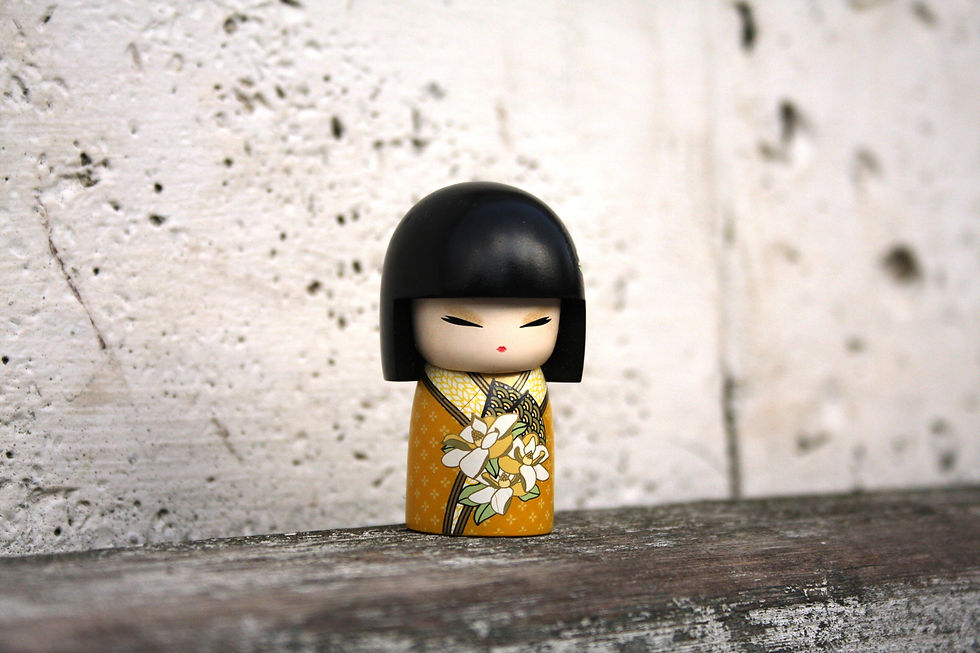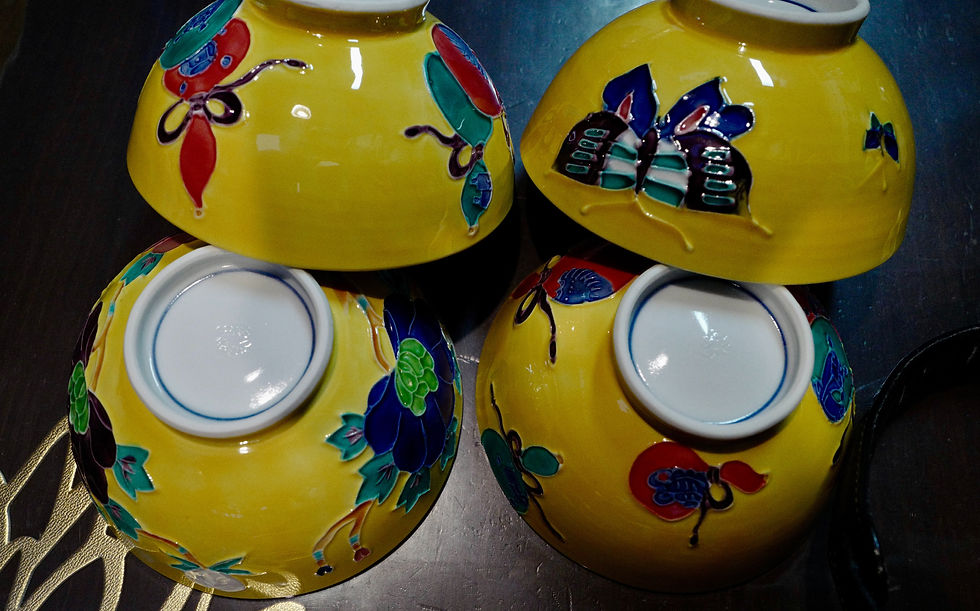5 Traditional Handicrafts Of Japan
- priancaasfiareza
- Nov 25, 2021
- 2 min read

Japan- country of Wonders, Sightseeing, and Traditions. Japan's Handicraft is one of the ancient traditions. Passed generation to generation unique technique and craftsmanship. This Beautiful Japanese Tradition is not only a souvenir or looking pretty but it upholds Japan's uniqueness.. Let's dive into 5 Japanese traditional handcrafts-
Kokeshi-

Kokeshi are wooden dolls, simple with no arm or legs, used as toys or souvenirs. Made out of wood. It started making around the Edo period, made out of cutting tree barks and letting it dry in the sun then crafting them into a doll form. This beautiful traditional Japanese handicraft are believed to be 150 years old.
2. Tetsubin -

Tetsubin (Iron kettle) is a Cast iron kettle. They come in different sizes, shapes, and designs. Tetsubin crafting started around the 9th century, during that time infused tea became popular, so having Tetsubin symbolized statues. And why iron kettle for tea? It is believed that boiling the water in Tetsubin makes the water better prepared for tea leaf to result in a great drinking tea.
3. Hamamatsu Chusen -

"Hamamatsu Chusen" is well known as the technique for dyeing Yukata (casual summer Kimono). Chusen is an old method of using a liquid to create patterns in cotton, the liquid follows the line-specific areas and absorbs the colors within then it gets steamed washed before letting it air dry. Mostly this handcart is used on the - Fabric Tapestry, which is also known as "Tenugui" that used over 100 years history hand dye technique in Japan. Omakase Japan Wholesale Platform has beautiful collections from Wantape.
4. Tsuboya ware -

Tsuboya ware is also known as Tsuboya yaki in Japanese. It is a Japanese pottery handcraft with the use of unique enamel found in Okinawa for coloring ceramics. There are 2 kinds of Tsuboya ware, one with simple paintings and another one that is rich in style to represent the tradition of Okinawa. Which holds the the old tradition of Japanese handcraft art and pottery.
5. Washi -
Washi is a Japanese handcraft paper technique, in which the paper is made of wood, processed by hand then crafted into thin paper, following a natural dye to make this beautiful colorful washi paper. Washi paper is usually more durable than normal paper, and it is used to make traditional art like Origami, Sodo, and more. As a Japanese traditional handcraft, it is registered as a UNESCO intangible cultural heritage.
Japan is rich in traditional handcraft arts, that have been passed down from generation to generation. It takes years to learn the technique and master the art of the handcraft's unique method. From then beautiful pieces of art are created, each unique and naturals in colors, shapes, and patterns. There are lots of exhibits going on in Japan, to see for yourself and experience the Japanese traditional handcraft.
Omakase Japan Wholesale Platform can get these Japanese handicrafts for you.
Contact us - omakasejp.com.




Comments